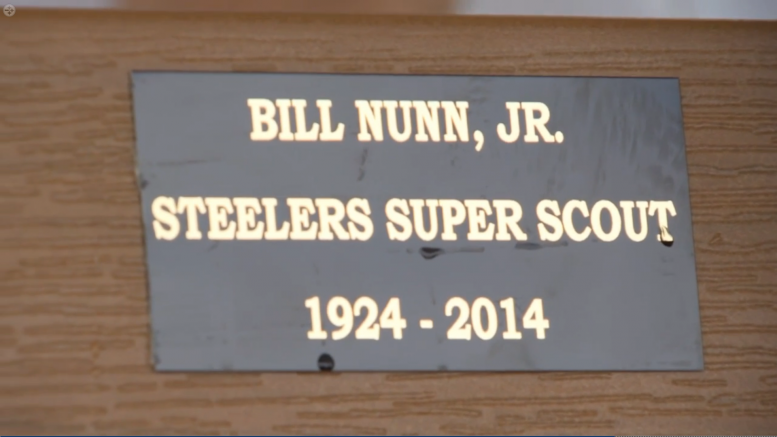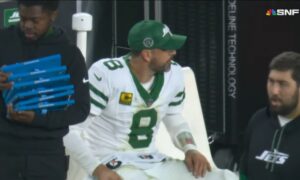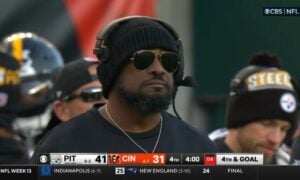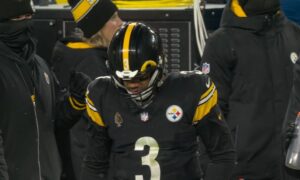There are few over time who have meant more to the Pittsburgh Steelers organization both professionally and personally than Bill Nunn, who served in both a formal and informal capacity within the organization for several decades.
Not only was his scouting work integral to the Steelers stockpiling the sort of talent that allowed them to become the team of the 1970s, helping to add Hall of Famers like John Stallworth, Mel Blount, and Donnie Shell through his familiarity with historically black colleges and universities.
And he had sense about him, as well. As the story goes, for example, he got Chuck Noll so high on Stallworth that they wanted to draft him in the first round in 1974. He told them to wait, to get the highly-touted Lynn Swann out of USC in the first round instead. And then he told them to wait. And to wait. And they finally came up in the fourth round and got him anyway.
This was just the sort of impact that Nunn had from a personnel standpoint. The reverence with which he is held by multiple generations of staff and faculty within the organization attests to the sort of character that he possessed.
Earlier today, it was announced that Nunn will be the contributor candidate for the 2021 class of the Pro Football Hall of Fame, all but assuring that he will finally receive the long-overdue honor of being recognized for the pivotal role that he played in forging one of the historic dynasties of the game. Head coach Mike Tomlin reflected on his impact both on the organization and on himself after practice today.
“You know, I learned a lot from Bill, formally, informally”, he said. “The journey that he walked that was his life was something to be learned. But just strictly vocationally from a talent evaluation standpoint, I was always really impressed how he never let football get in the way”.
“His evaluation style was purely based on pedigree”, he went on, “knee and ankle flexibility, body control, fine motor skills, top end speed, measurables, things of that nature. He never got distracted by the football and he kept evaluations pure from a pedigree standpoint. I was always really impressed and marked by that”.
Needless to say, pedigree played a much bigger role in separating talent evaluators at that time, especially when considering the lack of scouting done at HBCUs. HBCUs didn’t necessarily play the same level of talent that you saw from the traditional powerhouse schools, but Nunn saw that if a player had the talent, he could make the transfer.
About 10 percent of the current members of the Pro Football Hall of Fame, like Jerry Rice, Deacon Jones, Lem Barney, Roosevelt Brown, Willie Lanier, and those that the Steelers have added, came from HBCUs. How many of them do you think Nunn had a hand in scouting and promoting and putting on teams’ radars before others started paying attention?








